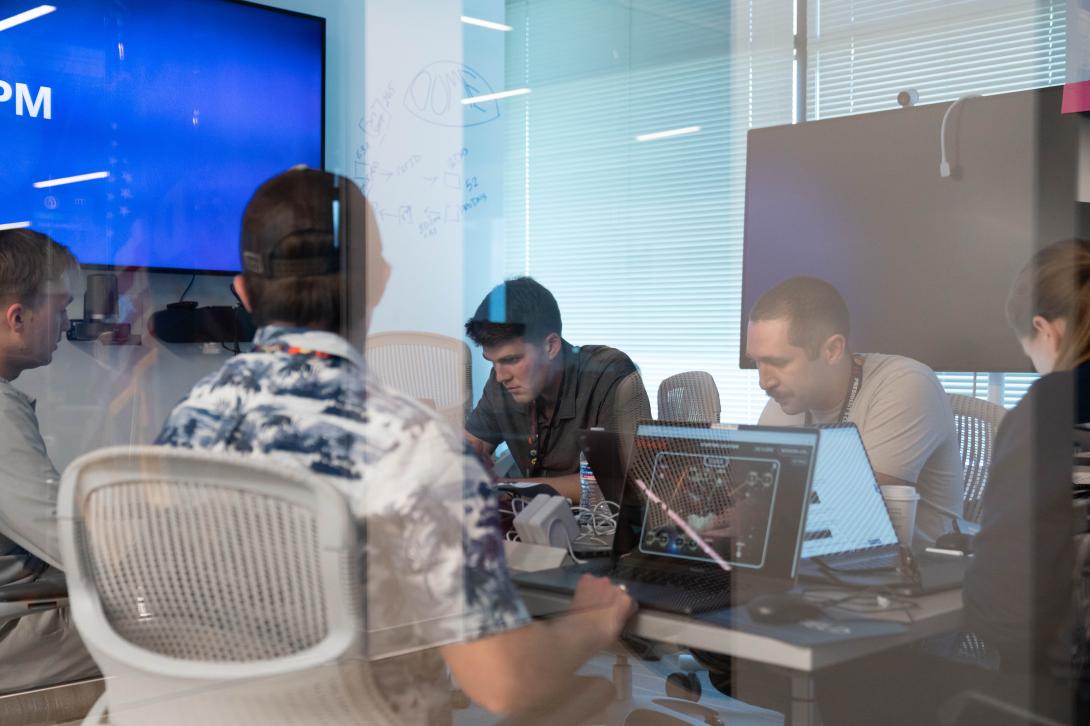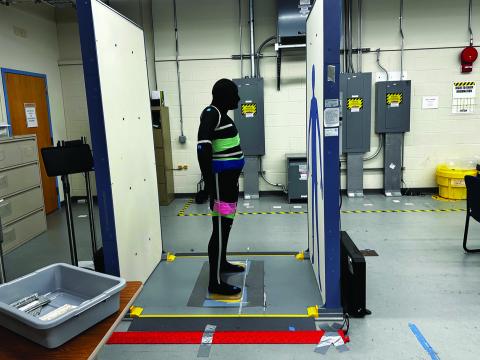The U.S. Government's Got Cyber Talent
For the fifth year in a row, the Cybersecurity and Infrastructure Security Agency (CISA) hosted its Presidents Cup Cybersecurity Competitions to identify and recognize the best cybersecurity talent in the federal government. This year's winners have been announced.
U.S. Army Maj. Nolan Miles took home first place for Individuals Track A; and U.S. Marine Corps Staff Sgt. Michael Torres was the winner of the Individuals Track B.
This was Torres' second time winning in the competitions, as he brought home the gold in the third President's Cup.
The winning team, named Artificially Intelligent, also included a member who has been on every winning team since the cup's inception.
“It’s the only competition that’s held across the federal government and only for federal employees,” Michael Harpin said, highlighting the unique aspect of the challenges.
Harpin is the current competitions section chief within the cybersecurity division at CISA, where he’s worked for six years.
This year’s competition had 1,400 individual registrations, with more than 300 participating teams, Harpin told SIGNAL Media in an interview.
The cup comprises three separate competitions, a CISA press release states. Two of them are individuals tracks.
Track A focuses on defensive work roles such as cyber defense incident response and forensic analyses, roles and tasks from the National Initiative for Cybersecurity Education (NICE) Cybersecurity Workforce Framework.
Track B looks at offensive work roles and tasks. The third competition is for teams to focus on defensive and offensive challenges.
“After every competition we reassess. Are these the work roles that are most relevant to topics within the community?” Harpin explained. “We get some input from different stakeholders we have in the competition as well as within CISA . . . but a lot of the tasks within those work roles are things that a large amount of the cybersecurity workforce in the federal government are going to be undertaking, so we want to be real-to-life within our challenges.”
As technology evolves, however, so will the challenges, he stated.
Though playing the challenges will only ever be available to federal government employees, certain content from the challenges, such as the write-ups, artifacts used and solution guides, are available for public view online via a GitHub repository.
CISA is also beginning to offer more content to the public through workshops and events. “We’re going to be holding a workshop at the NICE Conference & Expo in Dallas, Texas, on June 3, using some of our Presidents’ Cup challenges,” Harpin mentioned.
Additionally, the agency looks for ways to reuse content to help educate members of the public who have an interest in cybersecurity.
Participants are usually members of the cyber workforce; however, this year brought an individual from the U.S. Postal Service, and this was the first year that the Department of Transportation had representation in the finals. Harpin hopes more federal employees outside the cyber realm participate.
And though there is always some good-natured competitiveness among the different agencies, the winning team was made up of four U.S. Army individuals and a U.S. Air Force individual.
“That was really cool to see the mixed branch team win,” Harpin said. “We still haven’t seen a mixed Army and Navy team, though.”
The entire challenge was certainly a team effort, Harpin explained.
In addition to Harpin and his co-project manager, as well as contract support from CISA, the Software Engineering Institute of Carnegie Mellon handles all challenge development, he said.
The Department of Energy has also been a great partner, Harpin stated. The agency’s two national labs, the Pacific Northwest National Lab and Argonne National Lab, have done quality assurance and playtesting of the challenges for the last five years.
“Within CISA, on our external affairs team, there have been four or five individuals who are extremely talented . . . really mind-blowing in putting up some spectacular work every year on the different themes that we push out and try and make it unique for our participants.”
For the winners, the Office of the National Cyber Director will be hosting an awards ceremony at the White House on May 20.





Comments